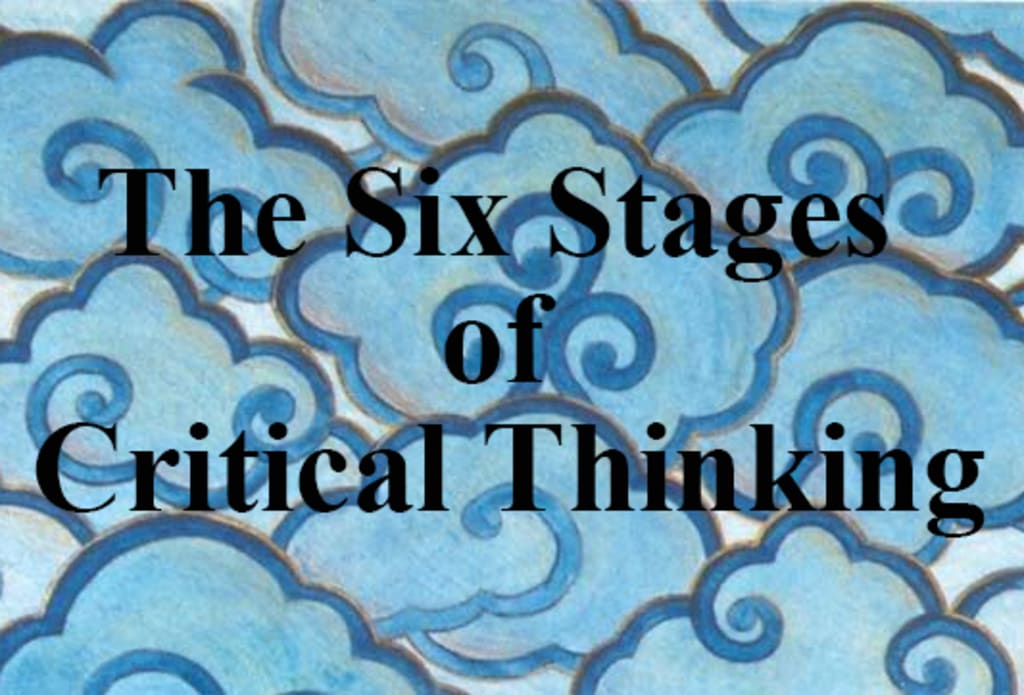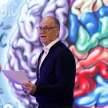The Six Stages of Critical Thinking
From Unreflective to Master.

Whilst creative or design-thinking is an essential differentiator in the 21st Century, all is for nothing if you don’t complement creativity with critical thinking.
The stage theory of critical thinking developed by psychologist Linda Elder and Richard Paul identifies six key stages of progression in critical thinking and provides a pathway for applying some benchmarks for improving our ability to analyze problems and dissect arguments. Methods of critical thinking that most of us use, require less effort and are unreflective. whereas mothods that master the analytical thinking require effort and dedication.
Of course, critical thinking requires effort. To progress to higher levels of mastery will require commitment and time. Very much like deliberate practice, critical thinking uses feedback and learning as a method for progressing up the pyramid. The higher levels of mastery aren’t going to happen subconsciously, you have to put in the effort! Like thinking, if you don’t use it, you lose it.
It would be wrong, in my opinion, to believe that pure, rational thinking doesn’t include emotion. Emotion is crucial in coming to any decision. Emotions guide our choices by informing us of what we want and like. This is shown by people who have had damage to the amygdala in the brain, the area most responsible for emotional responses. In the absence of any emotional guidance (as with a damaged amygdala) simple, everyday decisions become impossible. Even deciding what to eat can be agonizing for these people as they weigh up the endless possibilities, the pros and cons, never being able to come to a decision.
Emotional intelligence has a great deal to do with critical thinking and wisdom.

Stage One: The Unreflective Thinker.
People who do not reflect on their thinking, who proceed solely based on their opinions, biases, and prejudices will form misconceptions. They do not reflect on the impact and effect their decisions may have on their lives. They are impulsive, lacking crucial skills that would allow them to parse their thought processes.
They don’t apply relevant standards to their thinking, like accuracy, precision, or logic, in any consistent way. Most of us are at some time, unreflective thinkers.
Stage Two: The Challenged Thinker.
This person has an awareness of the place thinking has on their existence and behavior and realizes that a lack of critical thinking can develop into major issues.
To solve a problem, you must first identify that there is a problem. “High-quality thinking requires deliberate reflective thinking about thinking.” (Elder & Paul).This involves also recognizing that mental processes involve false beliefs, biases, and false assumptions. However, at this stage perhaps, not all mental flaws are identified.
The Challenged thinker will have a sense that critical thinking involves addressing assumptions, inferences, and other points of view. They may be fully aware of their own self-deception.
People at this stage in their thinking may believe that their thinking is better than it actually is, therefore making it more difficult to recognize their own poor thinking.
Stage Three: The Beginning Thinker.
People at this level of thinking actively take control of their thinking and behavior across wider areas of their lives. They have recognized that thinking can have blind spots and other problems and are beginning to take steps to address these.
A Beginning Thinker will see the value of reason, will become more self-aware of their thinking processes and will look into underlying biases and assumptions. At the same time the beginner will develop higher internal standards of clarity, logic, and accuracy and begin to realize the role played by emotion and ego in critical thinking.
Here also the Beginning Thinker will be more responsive to criticism and feedback and will utilize them in adjusting the direction of their thinking.
Stage Four: The Practical Thinker.
The Practical Thinker will recognize their deficiencies and will have developed some of the skills to deal with them. They will practice better thinking habits and will regularly analyze their mental processes.
The Practical Thinker will have an awareness of their mind’s strengths and weaknesses although perhaps without a systematic way of gaining insight into their thoughts. They may still be subject to self-deception.
To get to this stage, the person needs “intellectual perseverance” This involves developing a systematic and purposeful plan with deliberate practice methods, to take incremental and controlling steps to improvement.
Thinking is inevitably driven by questions - questions that seek answers for a purpose. For this to happen we need information, we need to interpret and understand that information by making inferences. Our inferences are based on our assumptions and are colored by a concept and our point of view.
Stage Five: The Advanced Thinker.
The Advanced Thinker will have strong habits that allow them to reflect on their own thinking with insights into varied and different areas of life. They would typically be able to spot prejudices in their ownthinking and understanding and from anothrs point of view. They will be fair-minded.
Whilst the Advanced Thinker may fully appreciate the role of their ego in the flow of ideas, they may not be able to see all the inferences and influences that affect their own mentality and that of others.
The Advanced Thinker will be comfortable with self-criticism and will systematically try to improve step-by-step. They will have intellectual insights that develop into new thought patterns and habits. They have aquired intellectual integrity, recognizing inconsistencies and contradictions, and intellectual empathy to be able to see the world from someone else’s point of view and to genuinely understand others. Advanced Thinkers will have the intellectual courage to confront ideas and beliefs that are not necessarily theirs.
Stage 6: The Master Thinker.
Master Thinkers are completely in control of how they make decisions and process information. They are constantly improving their thought skills. By regular practice, they raise the level of their thinking to a level of conscious realization.
A Master Thinker will be able to gain great insights into mental processes and will gain control over their ego. This will manifest itself in superior practical knowledge and insights, constantly re-examining assumptions, logic, and cognitive biases. They will analyze their own responses.
Our minds, when left to their own devices, will always veer towards anything that is immediately easy and comfortable. The brain wants to conserve energy; this organ consumes nearly 20% of our energy and constantly seeks to find methods to use less. The brain seeks whatever will serve its best interest and that is often finding the path of least resistance. It will resist anything which is difficult to understand and involves complexity.
Psychologists think (probably rightly) that most of us will never become master thinkers. But by constant intentional practicing, we can quickly see improvements in thinking - particularly in critical thinking and problem understanding/solving.

In today’s complex, information-rich world, it is easy to get lost in irrelevance and lose sight of priorities. Critical thinking is a crucial skill; it is the ability to be able to separate what is important and relevant for decision-making. The logic and deductive qualities of critical thinking are the perfect companion to creative thinking and should be seen as part of the whole “thinking” package.






Comments
There are no comments for this story
Be the first to respond and start the conversation.